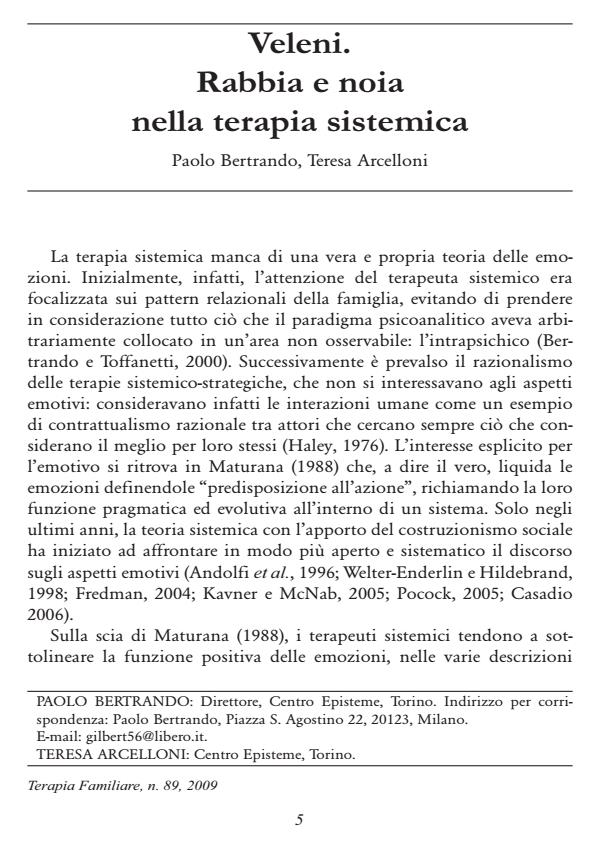Veleni. Rabbia e noia nella terapia sistemica
Journal title TERAPIA FAMILIARE
Author/s Teresa Arcelloni, Paolo Bertrando
Publishing Year 2009 Issue 2009/89
Language Italian Pages 24 P. 5-28 File size 114 KB
DOI 10.3280/TF2009-089001
DOI is like a bar code for intellectual property: to have more infomation
click here
Below, you can see the article first page
If you want to buy this article in PDF format, you can do it, following the instructions to buy download credits

FrancoAngeli is member of Publishers International Linking Association, Inc (PILA), a not-for-profit association which run the CrossRef service enabling links to and from online scholarly content.
Poisons. Anger and boredom in systemic therapy - In this article the authors reflect upon the emotional aspects of the therapeutic relationship, and especially on anger and boredom, two emotions that never had room within the theory of systemic therapy. This notwithstanding, systemic therapists often find themselves in situations where they experience such emotions with their clients. The leading thread of the present work is, therefore, the description of some situations where psychotherapy appears more difficult because anger and boredom are perceived as obstacles. Manifold opportunities emerge, instead, when both therapists and clients feel free and entitled to acknowledge such emotions and meta-communicate on them. To give a processual sense to these (and other) emotions, the authors think consistent with systemic thinking to locate them in the relational space "between" the actors of therapy. Therapist(s) and client(s) create a dialogical exchange with emotional aspects: in this perspective, the information brought by so-called unpleasant emotions is as relevant as that brought by satisfaction or enthusiasm. Key words: Emotions, theory of technique, systemic therapy, therapeutic relationship, anger, boredom.
Teresa Arcelloni, Paolo Bertrando, Veleni. Rabbia e noia nella terapia sistemica in "TERAPIA FAMILIARE" 89/2009, pp 5-28, DOI: 10.3280/TF2009-089001